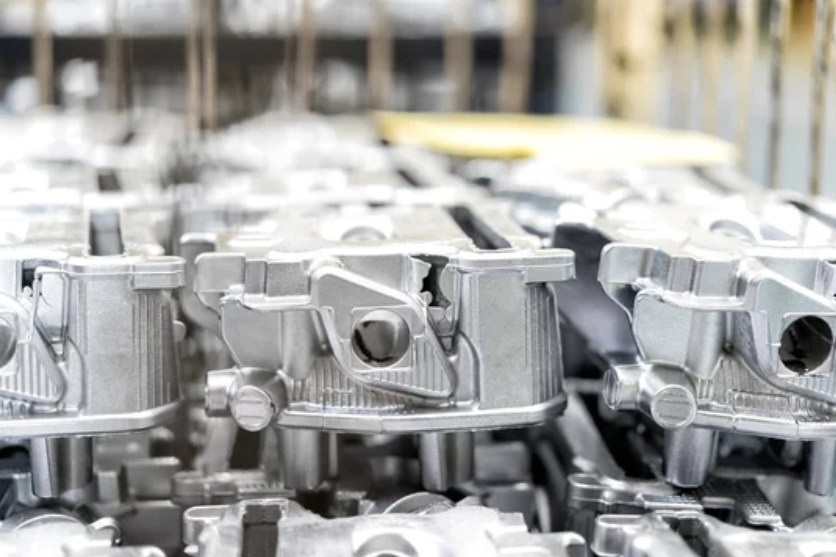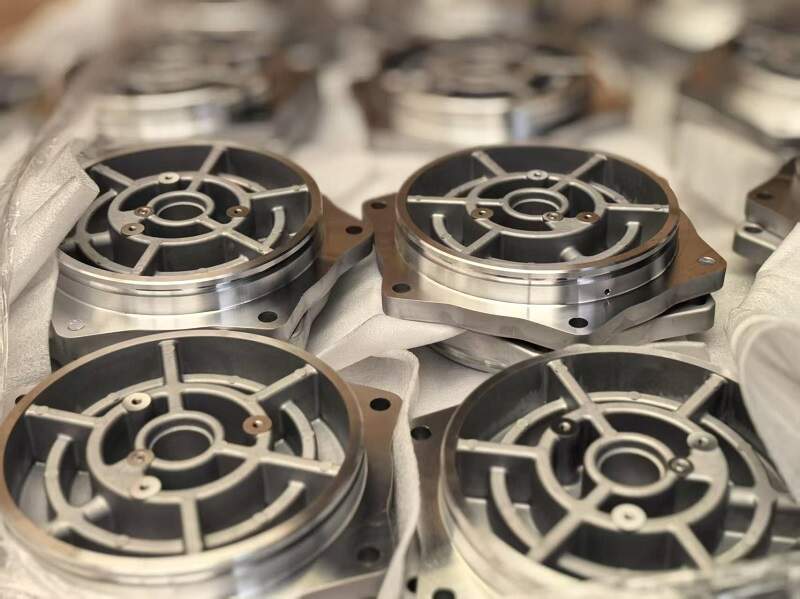Discover how modern Precision aluminum casting enhances product performance
Wiki Article
The Duty of Light Weight Aluminum Foundries beforehand Lightweight Production Solutions
Aluminum factories greatly add to the development of lightweight production options. Their ingenious casting modern technologies yield high-strength, light-weight parts vital for industries like auto and aerospace. This advancement not only enhances product performance however likewise promotes sustainability through making use of recycled materials. As these factories adjust to arising technologies and practices, they lead the way for future advancements in producing performance and environmental duty. What lies in advance in this transformative journey?The Benefits of Lightweight Products in Production
As sectors progressively seek efficiency and sustainability, the adoption of lightweight products in manufacturing has become a vital technique - Aluminum Foundry. These products, specifically aluminum and composites, provide numerous benefits that enhance production processes and product efficiency. Mainly, their minimized weight adds to decrease energy usage throughout transportation and procedure, leading to significant expense savingsMoreover, light-weight materials promote the layout of even more complex geometries, enabling for better technology in product growth. This flexibility frequently causes enhanced performance and performance, satisfying the progressing needs of modern customers.
Furthermore, making use of lightweight products can improve the longevity of items because of their resistance to deterioration and exhaustion. This durability not only minimizes upkeep costs yet additionally sustains sustainability initiatives, as longer-lasting products contribute to much less waste. To summarize, the benefits of light-weight products are crucial in driving effectiveness, development, and environmental obligation in production.
Technologies in Light Weight Aluminum Casting Technologies
Current developments in aluminum spreading modern technologies are revolutionizing the production landscape, specifically in the production of light-weight components. Technologies such as high-pressure die casting and vacuum cleaner pass away spreading have substantially boosted the precision and surface area coating of light weight aluminum parts - Precision aluminum casting. These techniques enable the creation of complicated geometries while reducing material waste and improving mechanical properties
Additionally, the execution of real-time surveillance systems assures quality control throughout the casting process, causing more regular product end results. Jointly, these developments not only boost the efficiency of aluminum components but likewise sustain the sector's change towards more lasting manufacturing techniques.
Applications of Aluminum Parts in Different Industries
While light weight aluminum parts have long been made use of in numerous sectors, their versatility and lightweight buildings remain to drive ingenious applications throughout fields such as automotive, aerospace, and construction. In the automobile market, light weight aluminum is increasingly utilized for engine blocks, wheels, and body panels, improving gas performance and efficiency. Aerospace manufacturers utilize aluminum for airplane frameworks and parts, profiting from its strength-to-weight ratio to improve fuel economic situation and haul ability.In the building market, light weight aluminum is favored for home window frameworks, roof, and structural aspects, supplying longevity and resistance to rust while reducing general building weight. Additionally, the electric and electronic devices sectors benefit from light weight aluminum's conductivity and light-weight nature, utilizing it in electrical wiring, rooms, and warmth sinks. These varied applications highlight the essential role of light weight aluminum elements, which not just fulfill market needs however additionally add to advancements in item design and functionality across several fields.
Sustainability and Energy Effectiveness in Aluminum Foundries
The light weight aluminum foundry sector plays a crucial role in promoting sustainability and power effectiveness, especially as need for lightweight elements continues to grow throughout numerous markets. Shops are progressively adopting eco friendly methods, such as using recycled light weight aluminum, which greatly minimizes energy usage and greenhouse gas exhausts compared to primary light weight aluminum manufacturing.Moreover, advancements in casting innovations boost energy performance by optimizing the melting processes and minimizing waste. Strategies like die spreading and financial investment casting enable precise product usage, decreasing excess and scrap.
Furthermore, many factories are spending in renewable resource resources to power procedures, better decreasing their carbon footprint. Applying energy administration systems enables foundries to improve and keep track of energy usage, ensuring they operate at peak performance.

Future Fads in Lightweight Manufacturing Solutions
How will emerging technologies form the future of lightweight manufacturing solutions? Technologies such as sophisticated materials, automation, and additive production are readied to redefine production processes. The combination of clever manufacturing modern technologies, consisting of the Web of Things (IoT) and expert system (AI), will certainly make it possible for real-time surveillance and optimization, enhancing effectiveness and reducing waste.
As sustainability remains to be an extremely important problem, lightweight solutions will significantly concentrate on recycling and recycling materials, straightening with round economic climate principles. This advancement in light-weight manufacturing will not only enhance item efficiency but likewise add to environmental objectives, making certain that the sector continues to be affordable in a rapidly altering market landscape.
Regularly Asked Concerns
Exactly How Do Light Weight Aluminum Foundries Make Certain Quality Assurance in Manufacturing?
Light weight aluminum shops guarantee quality assurance in production with extensive testing, standardized procedures, and constant tracking - get redirected here Aluminum Casting Company. They implement competent workers and sophisticated modern technologies to maintain consistency, lower issues, and fulfill market standards throughout the manufacturing processWhat Are the Key Challenges Faced by Aluminum Foundries?
Aluminum foundries deal see it here with challenges such as changing raw product costs, preserving manufacturing efficiency, making certain constant top quality, adjusting to technological improvements, and conference environmental laws, every one of which impact their overall operational efficiency and competitiveness out there.How Does Light Weight Aluminum Recycling Influence Factory Procedures?
Light weight aluminum reusing considerably boosts shop procedures by reducing basic material expenses, lessening energy intake, and lowering environmental effect. This sustainable method allows factories to enhance effectiveness while fulfilling enhancing demand for lightweight, high-performance aluminum products.What Abilities Are Required for Workers in Aluminum Foundries?
Workers in light weight aluminum factories need skills in metallurgy, machining, quality assurance, and safety practices. Effectiveness in running equipment, understanding alloy properties, and analytic are likewise vital for efficient manufacturing and keeping high safety requirements.Exactly How Do Light Weight Aluminum Foundries Deal With Waste Monitoring?
Aluminum shops manage waste via reusing scrap metal, utilizing efficient waste partition techniques, and adhering to environmental regulations. They carry out lasting methods to minimize land fill contributions, making certain that unsafe products are thrown away responsibly.Aluminum shops substantially add to the development of lightweight manufacturing services. Recent advancements in light weight aluminum spreading innovations are revolutionizing the production landscape, specifically in the manufacturing of lightweight components. While light weight aluminum elements have long been made use of in different sectors, their convenience and light-weight properties continue to drive innovative applications across sectors such as automobile, aerospace, and construction. In addition, the internet electrical and electronics markets profit from aluminum's conductivity and light-weight nature, utilizing it in wiring, units, and heat sinks. The aluminum factory market plays a critical role in promoting sustainability and energy performance, specifically as demand for lightweight parts continues to expand across various industries.
Report this wiki page